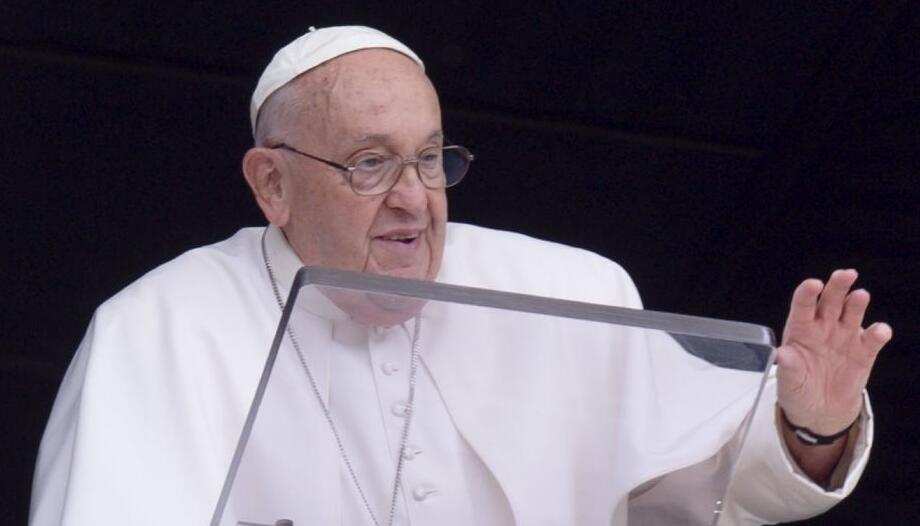"We continue our catechesis on the Holy Spirit who guides the Church towards Christ, our hope. He is our guide," the Pope began the Audience this morning in St. Peter's Square.
"Last time we contemplated the work of the Spirit in creation; today we see it in revelation, of which Sacred Scripture is an authoritative witness inspired by God," he continued, quoting St. Paul. "Paul's Second Letter to Timothy contains this affirmation: 'All Scripture is inspired by God' (3:16). And another passage of the New Testament says: 'Men moved by the Holy Spirit have spoken from God'" (2 Pet 1:21).
"It is the doctrine of the divine inspiration of Scripture, which we proclaim as an article of faith in the "Creed," when we say that the Holy Spirit 'spoke through the prophets.' The Holy Spirit, who inspired the Scriptures, is also the one who explains them and makes them eternally alive and active. From inspired, he makes them inspiring," he said on a sunny day in Rome before thousands of Romans and pilgrims from many countries gathered in St. Peter's Square.
He also stressed that "the Church, the Bride of Christ, is the authoritative interpreter of the inspired text, the mediator of its authentic proclamation. Since the Church is endowed with the Holy Spirit, she is the inspirer and interpreter, she is 'the pillar and foundation of the truth' (1 Tim 3:15)".
Texts that illuminate the problems we live with
The Pontiff said that, at times, a particular passage catches our attention and sheds more light. "The Holy Spirit continues in the Church, the action of the Risen Lord who, after Easter, 'opened the minds of the disciples to understand the Scriptures'. It can happen, in fact, that a certain passage of the WritingWe have read it many times without any particular emotion, and one day we read it in an atmosphere of faith and prayer, and suddenly that text is illuminated, speaks to us, sheds light on a problem we are experiencing, clarifies God's will for us in a given situation. To what is this change due, if not to an illumination of the Holy Spirit?"
Practical aspects for our day, Mass, homilies, homilies, etc.
Later on, Francis specified practical aspects for reading and welcoming the Word of God in our daily life. For example, "one way to carry out the spiritual reading of the Word of God is the practice of lectio divina. It consists in dedicating a moment of the day to the personal and meditative reading of a passage of Scripture". And "always have a Gospel in your pocket, on a trip, it is very important for life. to read during the day". The Pope has referred to this aspect on several occasions.
"But the spiritual reading of the Scriptures par excellence," he added, "is the communal reading that takes place in the Liturgy and, in particular, in the Holy Mass. There we see how an event or a teaching, given in the Old Testament, finds its full realization in the Gospel of Christ".
"The homily should help to transfer the Word of God from the book to life. it should be brief, an image, a thought, a thing of action, it should not last more than 8 minutes, because then attention is lost and people fall asleep," he pointed out.
Among the many words of God that we hear every day at Mass or in the Liturgy of the Hours, he said, "there is always one that is destined especially for us," he added, "if we take it to heart, it can enlighten our day and enliven our prayer. If we accept it in our hearts, it can enlighten our day and animate our prayer. It is a matter of not letting it fall on deaf ears.
In concluding, Francis quoted St. Gregory the Great, who defines Scripture as 'a letter of Almighty God to his creature,' like a letter of the Bridegroom to his bride, and prayed that "the Holy Spirit, who inspired the Scriptures and now flows from them, may help us to grasp this love of God in the concrete situations of our lives."
To pilgrims of different languages
In his words to the pilgrims of different languages, he urged them to "read and meditate on Sacred Scripture, asking for the light of the Holy Spirit, so that we may always know Christ better and proclaim him by the witness of our lives" (German language); he invoked "upon all of you the joy and peace of our Lord Jesus Christ" (English-speaking: United Kingdom, China, India, Indonesia, Philippines and the United States of America); and he called Poland the "semper fidelis" (English-speaking: United Kingdom, China, India, Indonesia, Philippines and the United States of America); and he called Poland the "semper fidelis".
He also reminded the Italian- and Portuguese-speaking faithful that "tomorrow we will celebrate the liturgical memorial of St. Anthony of PaduaThe Pope said: "May the example of this distinguished preacher, protector of the poor and the suffering, arouse in everyone the desire to continue on the path of faith and imitate his life. "May the example of this distinguished preacher, protector of the poor and the suffering, arouse in everyone the desire to continue on the path of faith and imitate his life, thus becoming credible witnesses of the Gospel," he said.
Lastly, as he always does, the Pope prayed for peace "in the martyred Ukraine", in Palestine and Israel, in Myanmar, and in so many places at war, which is always "a defeat".









